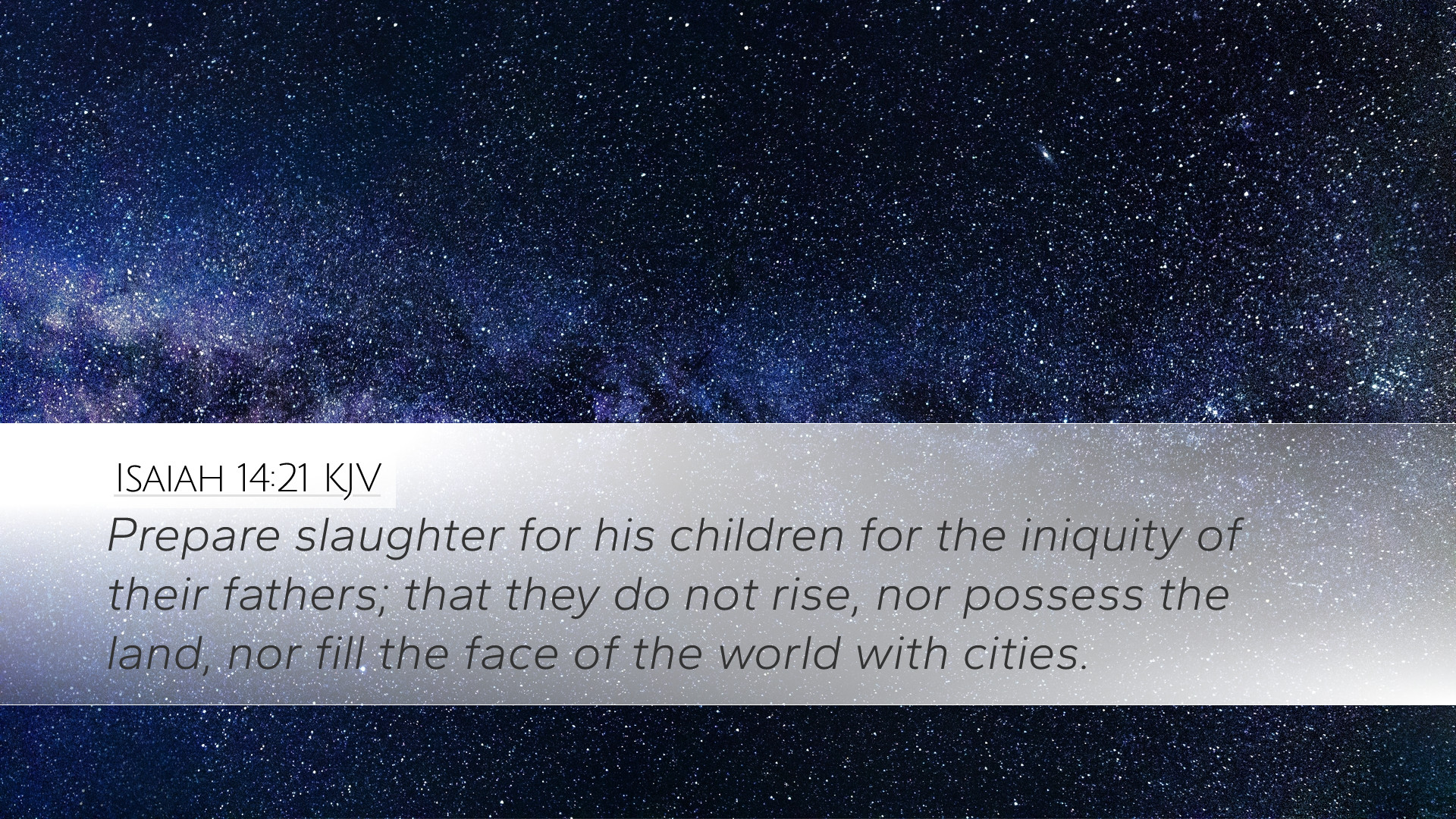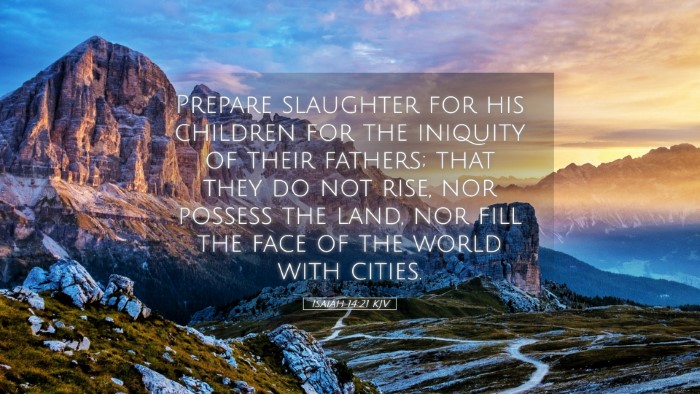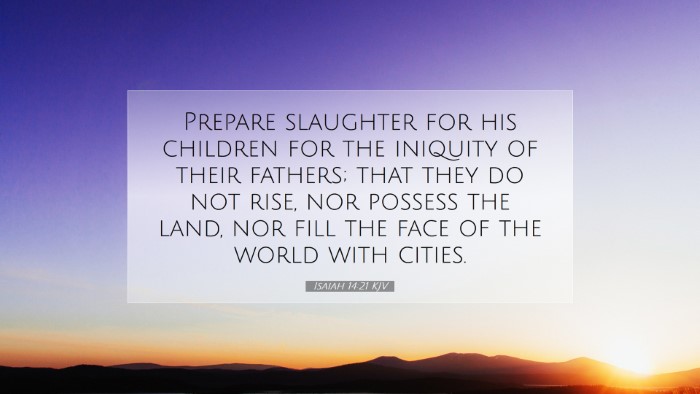Commentary on Isaiah 14:21
Bible Verse: "Prepare slaughter for his children for the iniquity of their fathers; that they do not rise, nor possess the land, nor fill the face of the world with cities." (Isaiah 14:21)
Contextual Overview
This prophetic verse occurs within the broader context of a taunt against the king of Babylon. Isaiah, through the inspiration of the Holy Spirit, presents a stark reminder of divine justice where the sinful acts of one generation can lead to judgment upon subsequent generations. This passage brings forth a strong sense of accountability, both individual and collective.
Commentary Insights
General Interpretation
Matthew Henry's Commentary: Henry notes that God's judgments are not arbitrary. This prescription of slaughter signifies God's retribution against the children of those who perpetuated evil. The emphasis here lies on “the iniquity of their fathers”, emphasizing that the consequences of sin extend beyond the individual to affect their progeny.
Albert Barnes' Notes: Barnes elaborates on the notion of divine justice as demonstrated in this verse. He underscores that this impending judgment serves both as a warning and a stern warning against sin. The futility of such cities and empires, which symbolize human pride and opposition to God, will be laid bare as a demonstration of God's sovereign power.
Adam Clarke's Commentary: Clarke reflects on the historical implications of this statement, particularly concerning the downfall of Babylon. He suggests that the annihilation of Babylon’s lineage symbolizes the ultimate triumph of God’s purposes over human arrogance and systemic sinfulness. The term “slaughter” is a grim preview of the fate that awaits those who do not repent.
The Theological Implications of Generational Judgment
In understanding this verse, it is vital to consider the theological implications of generational sin. Scholars agree that while each individual is ultimately responsible for their own sin (Ezekiel 18:20), the destructive patterns established by one generation can have lasting effects on subsequent generations. This principle plays a critical role in understanding both the mercy and the justice of God.
- Accountability: Each generation bears responsibility for the moral choices it makes, and the actions of previous generations can create an environment that leads to further iniquity.
- Judgment versus Mercy: The phrase "prepare slaughter" is balanced by the understanding of God's desire for repentance and restoration. While divine justice is certain, God's mercy remains available to those who turn back to Him.
Applications for the Modern Reader
This verse speaks profoundly to contemporary society within the context of cultural behaviors and systemic injustices. Leaders, families, and communities must recognize their role in shaping the moral fabric of future generations.
- Family and Legacy: Pastors and theologians should emphasize the importance of righteousness in family units. The trajectory of familial practices can dramatically influence the behavior of descendants.
- Social Justice: Understanding the weight of collective sin encourages a communal approach to repentance. Communities must act against systemic sin to pave the way for a righteous inheritance.
- Hope for Redemption: While the verse serves as a stark warning, it ultimately points to the necessity of Christ’s redeeming grace. Believers are called to live transformed lives that reflect God's character, fostering a legacy of faith.
Conclusion
Isaiah 14:21 stands as a sobering reminder of the consequences of sin, not just for individuals, but across generations. Through the insights of esteemed commentators like Henry, Barnes, and Clarke, the theological depth and social implications of this verse become apparent. As we reflect upon this verse, let us heed its warning and embrace the redemptive opportunities afforded to us through Christ, ensuring that we leave behind a legacy reflective of God’s justice and mercy.


